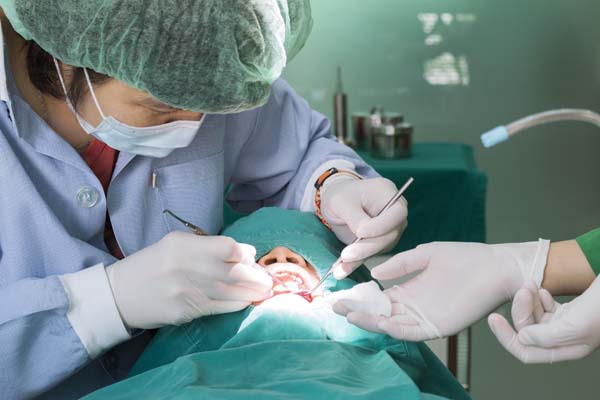A Guide to Wisdom Tooth Extraction From an Oral Surgeon
A is a dental procedure usually performed by an oral surgeon or a dentist. This procedure involves the extraction of one or more wisdom teeth. Wisdom teeth, also known as third molars, first appear in young adults between the ages of 17 and 21. If wisdom teeth cause particular problems, extraction may be necessary. Keep reading to learn more about wisdom tooth extraction.
Wisdom tooth extraction
Wisdom teeth are situated at the very back of the mouth. Wisdom teeth may not have to be removed if they come through correctly and are healthy. A person may feel a little discomfort when the wisdom teeth first appear. But if an individual experiences pain, seeking medical assistance is recommended.
Causes of problems
If wisdom teeth do not have sufficient space to erupt, it can cause them to become impacted. An impacted wisdom tooth may grow at various angles in the patient’s jaw. Sometimes, rather than coming in straight, the tooth may lie on its side and press up against the nearby tooth. This pressure may cause issues with crowding of the other teeth. It can also cause improper bite alignment as well as other problems.
A partially erupted wisdom tooth also increases the risk of developing pericoronitis in that area. This is a painful, inflammatory gum condition. In particular instances, wisdom teeth issues can result in an infection. If a cyst forms, it can damage the bone or roots.
Treatment
Dental professionals disagree about the value of removing wisdom teeth that do not cause problems. Some recommend removing wisdom teeth if they do not fully emerge. Many professionals support removing wisdom teeth at a younger age. The removal is often done before the bone and roots are fully formed, and when recovery is generally quicker after surgery.
Removing them when a person is older is usually harder. It is also more likely to cause problems. But some practitioners recommend removal when there is evidence of changes in the mouth. The changes include pain, cysts, tumors, tooth decay, infection, and gum disease. Wisdom teeth may also cause damage to nearby teeth. To remove the wisdom teeth, the oral surgeon or dentist will make an incision in the gum tissue to expose the bone and tooth.
The connective tissue between them will then be gently detached. The provider will then remove the tooth and clean the site. After extraction, a patient may need stitches. In some instances, some of the bone surrounding the wisdom tooth must be removed. In this case, the tooth may have to be cut into sections to allow removal.
Making the decision
Many dental providers recommend removing wisdom teeth that are problematic. Wisdom teeth that are causing pain or other dental issues are often extracted. To find out if a wisdom tooth extraction is necessary, contact an oral surgeon today. The dental professional will check the position and health of your wisdom teeth before determining the ideal way to address your issue.
Are you considering wisdom tooth extraction in the Lee's Summit area? Get more information at https://spectrumsurgical.net.
Check out what others are saying about our dental services on Yelp: .
Recent Posts
The jawbone is the part of the face that holds many essential elements together, such as the teeth, ligaments, and muscles; however, bone grafting may sometimes be necessary if the jawbone is too weak to perform these tasks. A person’s jawbone can deteriorate over time, whether due to age, genetics, poor oral health, cancer, or…
Finding lasting relief from issues such as misalignment and facial asymmetry can involve specialized procedures. Fortunately, corrective jaw surgery is a reliable option for addressing these concerns. A dental specialist realigns the upper or lower jaw during this process to promote better function and comfort. Although the procedure can benefit health and appearance significantly, a…
Many individuals seek rhinoplasty to enhance facial harmony, improve nasal function, or correct structural abnormalities. As a surgical procedure that reshapes the nose, rhinoplasty can address aesthetic concerns as well as breathing difficulties caused by structural defects such as a deviated septum. Understanding the consultation process, surgical techniques, and what to expect from the recovery…
The facelift is one of the oldest and most well-known cosmetic surgeries for restoring a youthful appearance to the face. If you are considering this procedure, it is important to understand the steps of the process and the time commitment involved. The specifics of the process can vary depending on the patient; however, here is…


